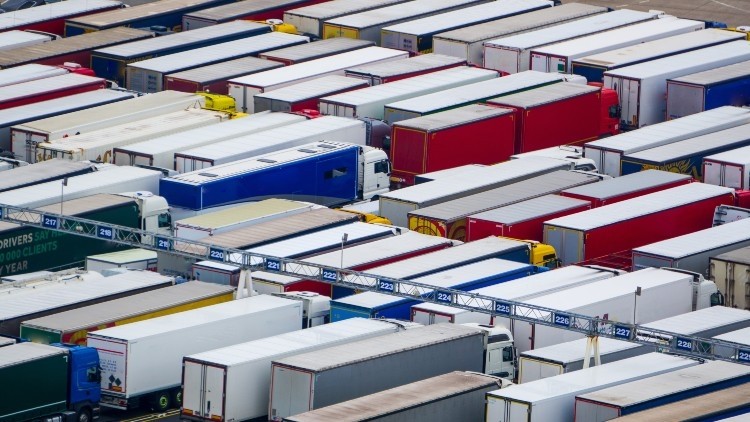Brexit
Brexit: import and exports of confectionery hit as EU and UK firms grapple with new rules

The UK left the European Union on 1 January 2021 and the Federal Association of the German Confectionery Industry (BDSI) said every third company that regularly exports its products reports considerable problems in supplying the British market since Brexit.
Almost 10% of German confectionery exports go to Great Britain, making it the second most important export market for the German confectionery industry. Within the German food industry, the confectionery industry is the most important exporter to Great Britain and represents a fifth of the export value of German food to the UK, according to the BDSI.
"The negotiated rules of origin for confectionery deviate considerably from the previous rules of origin and contribute to further complicating duty-free deliveries," said Dr Carsten Bernoth, General Manager of the BDSI.
"The EU Commission and the member states may protect many interests in the field of agricultural products, but they are doing this clearly at the expense of the medium-sized processing industry, which ensures the highest added value for the EU, but can now fall back on no uniform rules of origin for its export activities and is drowning in bureaucracy.”
With several deliveries of goods via the English Channel every week, 58% of the companies say the very complex new customs formalities are the greatest challenge for a smooth process in logistics.
The BDSI reports almost one in 10 (9%) of its members completely stopped supplying the British market at the start of the year. It also said approximately 15% of companies fear their products will not be available, temporarily, on the shelves of UK grocery stores due to the logistics problems.
The German confectionery companies named driver shortage and health entry restrictions (especially due to the coronavirus crisis) as further major challenges.
Documentation
Tracey Hughes, managing director of leading UK ingredients distributor Henley Bridge told this publication: “The main problem we’ve had is that our European suppliers have underestimated the lack of consistency with documentation across different customer clearance agencies and transport companies.
"We’ve found ourselves completing the paperwork for a supplier, only to find that they have switched to another haulier for a subsequent shipment, so we’ve had to start the paperwork from scratch. There has been a lot of additional paperwork to complete, which has delayed some shipments, but, fortunately, we pre-stock built as part of our Brexit contingency plan, so it hasn’t really impacted us.
Freight volumes
Freight volumes in general moving between the UK and EU were down 38% in the third week of January compared with the same week a year ago, according to latest truck movement data.
Ben Fletcher, Policy Director of Make UK, which represents British manufacturers, including the food and drink sector, said importers and exporters have been unable to move supplies because of new red tape.
A survey by its member shows 60% of companies that said there were ready for Brexit “now experience disruption” and are “also finding supply chains significantly impacted”.
“There is real anger and incredible frustration for people who either import or export that they are simply not able to move stuff. It is just incredibly difficult to get the paperwork right and there have been very low levels of support from government,” he said.
British high street store, Marks & Spencer, reported the problems with Percy Pig confectionery, which is made in Germany, imported to the UK and re-exported to the Republic of Ireland (which is still in the EU), making them liable for import tax and causing a shortage in shops.
Hughes said: “There have also been issues with importing goods into the UK which we then had to ship to Northern Ireland and, from there, were being shipped into the Republic of Ireland, which was resulting in an additional tariff charge and therefore having a financial impact on customers.”
Glasgow-based Bradfords Bakers is a family-owned e-commerce company that deliver gifts UK wide and into Europe.
Brexit has complicated the way in which it conducts business with suppliers and with the added pressure of lockdown due to the coronavirus.
Director James McGoldrick said: "Nothing has changed on our end – we still create our traditional hampers. What has changed is our suppliers’ regulations in relation to delivering to us the packaging we need, which accounts for 60% of all the packaging we use in the business.
"There are suppliers in Europe that ship worldwide, who are not facing issues like ours are. When the UK left the EU and regulations changed, these suppliers started delivering products to the UK the way they normally would to the USA, for example. Those rules and regulations were already in place for them, they just had to apply them to their customers in the UK. However, they are still facing some delays from the customs check points.
"Our suppliers in Italy and Germany, however, are accustomed to delivering products to Europe. They are still grappling with how they can make sure our needs are met, because there are brand new procedures in place that were not before. They need to complete customs declarations and paperwork that they never needed previously to ensure that our orders can be imported correctly. They need to receive new training on how to make declarations to ensure everything is done properly."
Some German companies fear that further tightening of the coronavirus-related entry regulations will cause additional problems for a smooth logistics process.
The BDSI said problems at the border with the UK will persist even after the coronavirus crisis has ended and customs clearance has been brought in: “German-British trade will continue to be characterized by high administrative hurdles”, it said.








